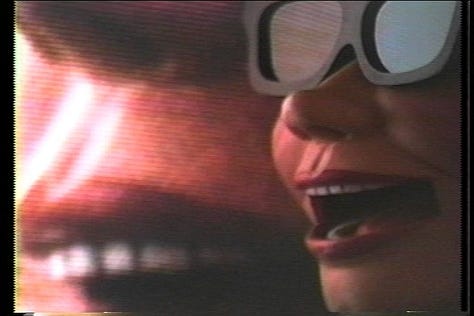It was a pleasure to burn.
It was a special pleasure to see things eaten, to see things blackened and changed. With the brass nozzle in his fists, with this great python spitting its venomous kerosene upon the world, the blood pounded in his head, and his hands were the hands of some amazing conductor playing all the symphonies of blazing and burning to bring down the tatters and charcoal ruins of history.— Fahrenheit 451, Ray Bradbury
Then—motion pictures in the early twentieth century. Radio. Television. Things began to have mass.” “And because they had mass, they became simpler,” said Beatty. “Once, books appealed to a few people, here, there, everywhere. They could afford to be different. The world was roomy. But then the world got full of eyes and elbows and mouths. Double, triple, quadruple population. Films and radios, magazines, books leveled down to a sort of paste pudding norm, do you follow me?”
“I think so.”
“Speed up the film, Montag, quick. Click, Pic, Look, Eye, Now, Flick, Here, There, Swift, Pace, Up, Down, In, Out, Why, How, Who, What, Where, Eh? Uh! Bang! Smack! Wallop, Bing, Bong, Boom! Digest-digests, digest-digest-digests. Politics? One column, two sentences, a headline! Then, in mid-air, all vanishes! Whirl man’s mind around about so fast under the pumping hands of publishers, exploiters, broadcasters that the centrifuge flings off all unnecessary, time-wasting thought!”
“School is shortened, discipline relaxed, philosophies, histories, languages dropped, English and spelling gradually gradually neglected, finally almost completely ignored. Life is immediate, the job counts, pleasure lies all about after work. Why learn anything save pressing buttons, pulling switches, fitting nuts and bolts?”
— Fahrenheit 451, Ray Bradbury
Every second closer to the end. The years tick away like minutes. You live such a brief time. Why do you spend it watching this nonsense?
— The Doctor
“Sit down, Montag. Watch. Delicately, like the petals of a flower. Light the first page, light the second page. Each becomes a black butterfly. Beautiful, eh? Light the third page, from the second and so on, chain-smoking, chapter by chapter, all the silly things the words mean, all the false promises, all the secondhand notions and time-worn philosophies.”
“One last thing,” said Beatty. “At least once in his career, every fireman gets an itch. What do the books say, he wonders. Oh, to scratch that itch, eh? Well, Montag, take my word for it, I’ve had to read a few in my time, to know what I was about, and the books say nothing! Nothing you can teach or believe. They’re about nonexistent people, figments of imagination, if they’re fiction. And if they’re nonfiction, it’s worse, one professor calling another an idiot, one philosopher screaming down another’s gullet. All of them running about, putting out the stars and extinguishing the sun. You come away lost.”
You can’t build a house without nails and wood. If you don’t want a house built, hide the nails and wood. If you don’t want a man unhappy politically, don’t give him two sides to a question to worry him; give him one. Better yet, give him none. Let him forget there is such a thing as war. If the government is inefficient, top-heavy, and tax-mad, better it be all those than that people worry over it. Peace, Montag. Give the people contests they win by remembering the words to more popular songs or the names of state capitals or how much corn Iowa grew last year. Cram them full of noncombustible data, chock them so damned full of ‘facts’ they feel stuffed, but absolutely ‘brilliant’ with information. Then they’ll feel they’re thinking, they’ll get a sense of motion without moving. And they’ll be happy, because facts of that sort don’t change. Don’t give them any slippery stuff like philosophy or sociology to tie things up with. That way lies melancholy.
— Fahrenheit 451, Ray Bradbury
Faber turned the pages. “Mr. Montag, you are looking at a coward. I saw the way things were going, a long time back. I said nothing. I’m one of the innocents who could have spoken up and out when no one would listen to the ‘guilty,’ but I did not speak and thus became guilty myself. And when finally they set the structure to burn the books, using the firemen, I grunted a few times and subsided, for there were no others grunting or yelling with me, by then. Now, it’s too late.”
— Fahrenheit 451, Ray Bradbury
I Love The People
So you say your child is watching too much television. What the hell do you know about it? What is too much television anyway? You make me sick with your old fashioned ways. Kid wants to have a little fun, watch a little TV. Well, let him watch it. Let him watch it until he rots!
— The Doctor
The Media Reacts






— The Cleveland Edition, Rikki Santer







